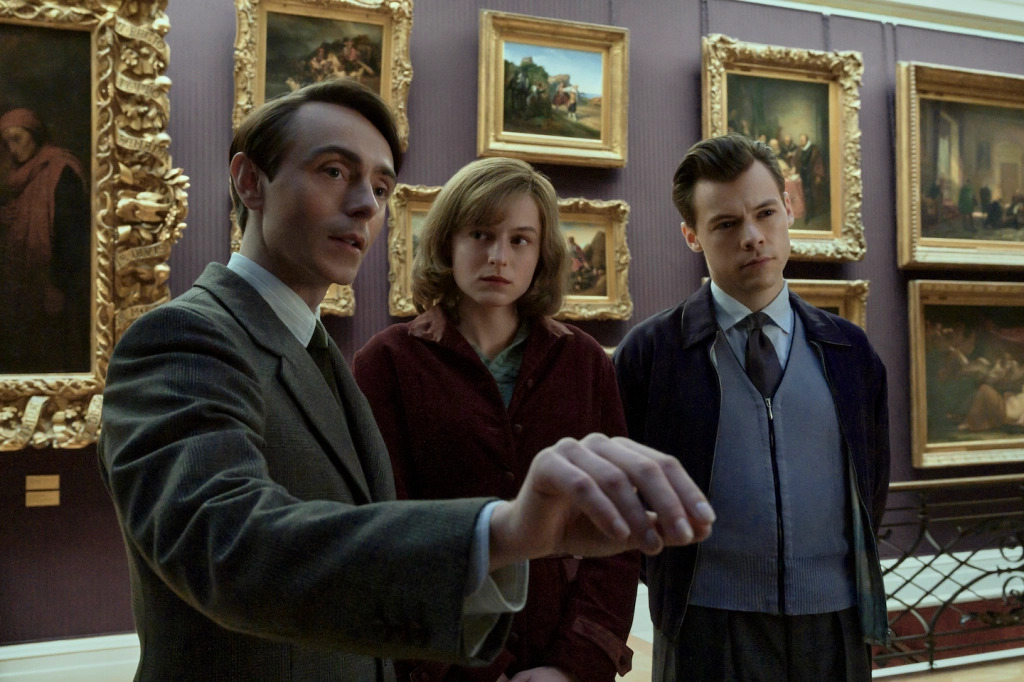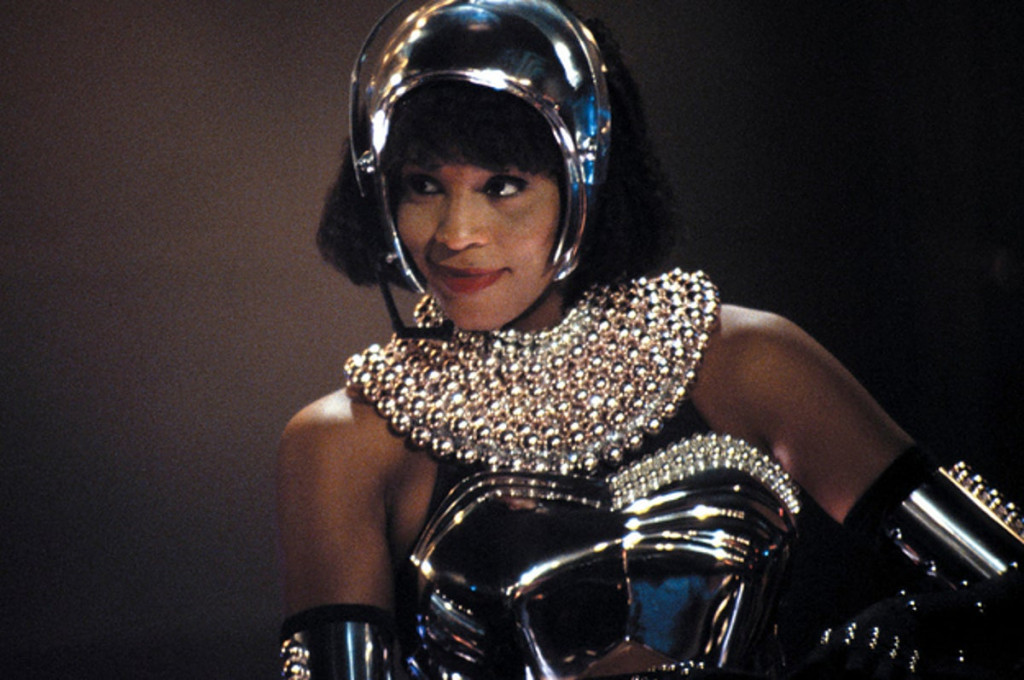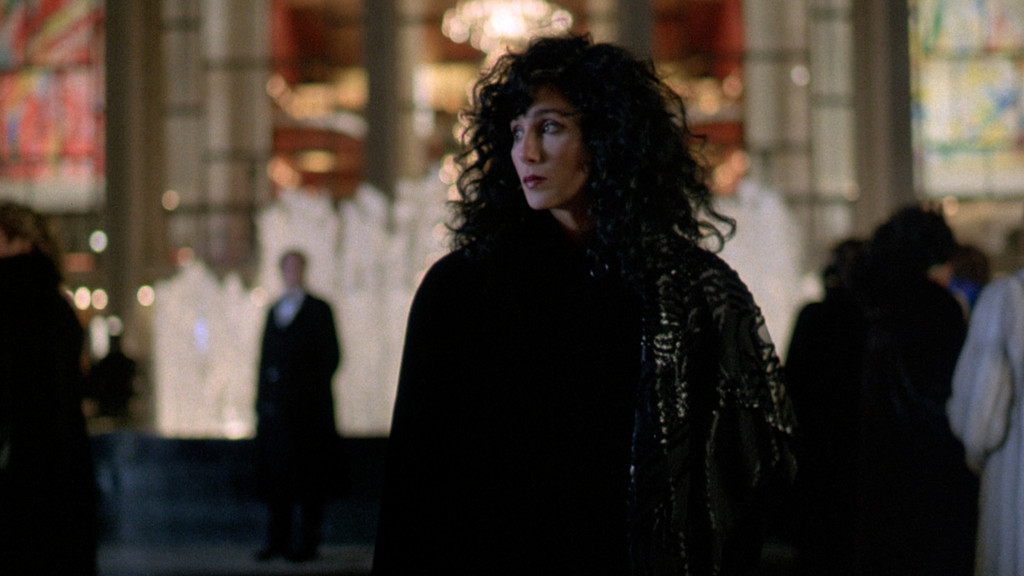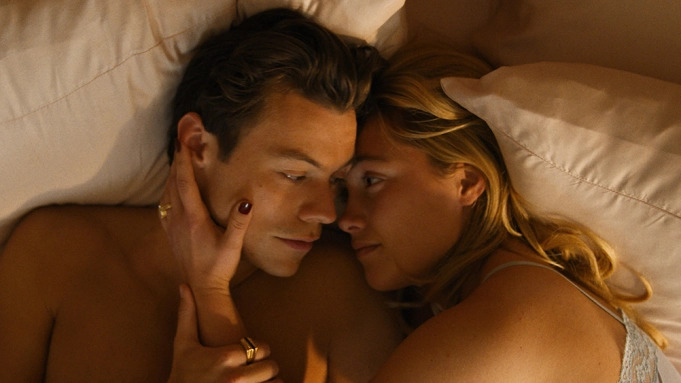In 2017, when Christopher Nolan released his gritty war-film Dunkirk, the press asked whether the current Prince of Pop, Harry Styles, was any good in it? It was his debut role, and it came on the heels of a hotly anticipated solo album after the world domination of One Direction ended the year before. There were articles online that collated every mention of Styles in reviews (most considered his performance “solid” and “understated”) and other articles that described, in detail, everything Styles did in the film; explaining the exact point he showed up in the movie, when his first line was, his reaction to being offered toast and jam. On the press tour, Styles was front and centre. He made an appearance on The Tonight Show and the Today show in America, then, in the UK, appeared on This Morning alongside his co-star Kenneth Branagh to discuss his experience working with Nolan.
In July, Styles will transition from supporting actor to leading man in Don’t Worry Darling, a Stepford Wives-esque thriller directed by Olivia Wilde and starring Florence Pugh and Chris Pine. In October, he’ll appear as Tom, a closeted police officer trying to balance his relationships with his wife and his male lover in My Policeman. The film’s October release date suggests the studio thinks there’s some awards potential there, and the cast does also include The Crown’s Emma Corrin and BAFTA nominee Rupert Everett. Elsewhere, after appearing in an end-credits teaser during The Eternals last year, Styles also has a role in the Marvel Cinematic Universe (yawn!). There has been no confirmation of where exactly Styles fits into the studio’s master plan. Still, he’ll likely show up, albeit in a limited capacity, in one or more of the many, many projects the studio has lined up over the next few years. In March, however, he dropped out of visionary director Robert Egger’s Nosferatu remake due to scheduling conflicts, but, last month, rumours swirled that Styles had signed on to appear in Dan Gilroy’s latest project, whose previous movies Nightcrawler and Velvet Buzzsaw have made a relative splash for their intensity and strangeness. Styles seems to be carving a very distinct path for himself, but he’s certainly not the first to do so.

Since the beginning of talkies, musicians have stepped into film, and the results have been mixed. For every Whitney Houston, Cher, and Queen Latifah, there’s a Madonna, Britney Spears, or Jessica Simpson. In the early days of Hollywood, triple threats like Judy Garland and Frank Sinatra were the lifeblood of major movies. Stars who were equally at home on screen and in the recording studio dominated the entertainment industry. They starred in films, released albums, recorded variety specials for television, and did concert tours. But, since the end of the studio system and the decline in lavish movie musicals, it’s become much rarer to see a star who can do it all (or, at least, see that star exercise all their talents at the same time).
In modern movie making, singers still cross over but they tend to take one of two distinct routes. These paths are best explored by looking at two singers who found great success in movies: Whitney Houston and Cher.
By 1992 Houston was one of the most prominent musical artists of the late 20th century. Her self-titled debut album topped the charts in 1985 and generated three number-one singles. Her second album, Whitney, in 1987, added five more top-ten hits to her name, and her third album, I’m Your Baby Tonight, added six more in 1990. Her success as one of the world’s most recognisable stars of the nineties meant that Warner Bros. didn’t have to look far when casting the role of Rachel Marron in The Bodyguard. Houston’s star persona was a perfect fit for the leading role as an ultra-successful singer being stalked by an obsessive fan. In fact, in the 1970s, Diana Ross had been meant to play Rachel before the movie got stuck in development hell.

Houston’s casting, as Ross’s would have been, was a perfect example of how ‘stunt casting’ can be used to a film’s advantage. The Bodyguard hinges on whether or not we believe Rachel Marron is the biggest star in the world, and when we look at Houston on screen, we see a star. It’s Houston’s prowess as a singer that makes the film work. Her presence on stage when she’s performing in clubs makes Rachel’s level of superstardom believable, and Houston’s connection to the material, about a huge star fighting for privacy, allows Rachel to become more rounded, often in softer, quieter moments. Given that The Bodyguard became a huge hit, it’s clear it worked, and it meant that Houston could explore other acting opportunities. She joined Angela Basset in the totally brilliant Waiting to Exhale in a non-singing role. However, she contributed two songs to the incredible R&B soundtrack and then starred opposite Denzel Washington in The Preacher’s Wife.
Using a star’s persona to build a career in movies is a typical path, and many have followed in Houston’s footsteps. For example, Lady Gaga’s breakthrough performance in A Star is Born had a similar vibe. As Allie, the audience gets an immediate sense of her star potential because we know what Gaga can do. When she steps out onto the stage and sings ‘Shallow’ for the first time, we feel the thrill that the talent we know is finally coming through and being recognised. The same can be said for Jennifer Hudson, who won an Oscar for her debut performance in the movie-musical Dreamgirls. The actress who played Effie needed to be a powerhouse and have the ability to nail the character’s signature song, ‘And I Am Telling You’. Hudson had all that and more after appearing on the first season of American Idol, coming in fifth place, and trying to establish herself in the music industry with a few features and singles. In all these cases, the casting works to help sell the film’s musical element and allows fans of those singers to see their favourite performers in a new light. It’s why we saw Mariah Carey in Glitter, Eminem in 8 Mile, and Beyoncé in The Fighting Temptations, Dreamgirls, and Cadillac Records.

Cher, however, walked into movies without singing a word. She would sometimes contribute a song to the soundtrack, such as her cover of ‘The Shoop Shoop Song’ for 1990’s Mermaids, but it wasn’t until 2010’s Burlesque, followed eight years later by Mamma Mia: Here We Go Again, that Cher actually sang on-screen. Instead, as Cher told Graham Norton in 2013, the idea of her acting garnered laughter from audiences who saw the trailer for Silkwood in theatres. The film, directed by Mike Nichols, was based on real-life whistle-blower Karen Silkwood and saw Cher star opposite Meryl Streep (already a two-time Oscar winner by then) and Ken Russell, whose appearances in The Thing and Big Trouble in Little China had made him a household name.
Before Silkwood, Cher had been known as a campy and extravagant pop singer, as one half of Sonny and Cher, even if she had starred in a play on Broadway and in the film adaptation of that play directed by famed auteur Robert Altman. Silkwood, however, signalled a shift (one detailed in Be Kind Rewind’s video essay on Cher as an actress). Her performance was jaw-dropping as a lesbian woman sick from radiation poisoning due to her workplace’s negligence, and she earned an Academy Award nomination. After Silkwood, Cher went on to win the Best Actress Award at the Cannes Film Festival for her performance in Peter Bogdanovich’s Mask in 1985. She followed this up with an Oscar win for her sensational performance in 1987’s Moonstruck (a practically perfect movie!). So, Cher was a big deal in movies throughout the eighties and into the early nineties. She had big hits with The Witches of Eastwick, Suspect, and Tea with Mussolini, before deciding to only appear in cameos for most of the early noughties.

In contrast to Houston, Cher actively set out to act in movies that didn’t need her vocal talent to prove she won the roles on her skill as an actress. This meant that, for the most part, Cher’s two careers almost ran concurrently and rarely met. Jennifer Lopez, as an example, followed a similar trajectory when she started on network television before gaining rave reviews for her performances in movies like Out of Sight and Hustlers. Lopez didn’t sing on screen until 2022’s Marry Me (although she did appear as Latin pop princess Selena in a 1997 biopic, she lip-synced to the original vocals). Justin Timberlake, who also left a boyband to go solo and then began acting, took this approach, too. His roles in critical hits like The Social Network and rom-coms like Friends with Benefits quickly established the star as a go-to leading man. The same can be said for Ice Cube who appeared in movies like Boyz N the Hood, before he started making mainstream family comedies in the noughties.
Each path has its perks, each has its risks. There’s a chance, as with Gaga and Houston, that exploding into movies with the full weight of your musical talent can work. But it doesn’t work for everyone! Meanwhile, Cher’s route runs the risk of a star being ignored or, worse, giving a bad performance because they haven’t got their musical talent to hide behind. Looking at Styles’ upcoming roles, it seems like he is taking the Cher route, too. None of the movies he’s been cast in thus far require him to sing. Though he was close to being cast in the upcoming Elvis Presley biopic and was rumoured to be in contention to play Prince Eric in the live-action remake of The Little Mermaid, neither came to fruition. Instead, it looks like he’s stepping out to prove that, without the silky singing voice, he has the ability to act the house down. We’ll find out later this year if that is the case.
Also Read: The Music Behind Great Films











